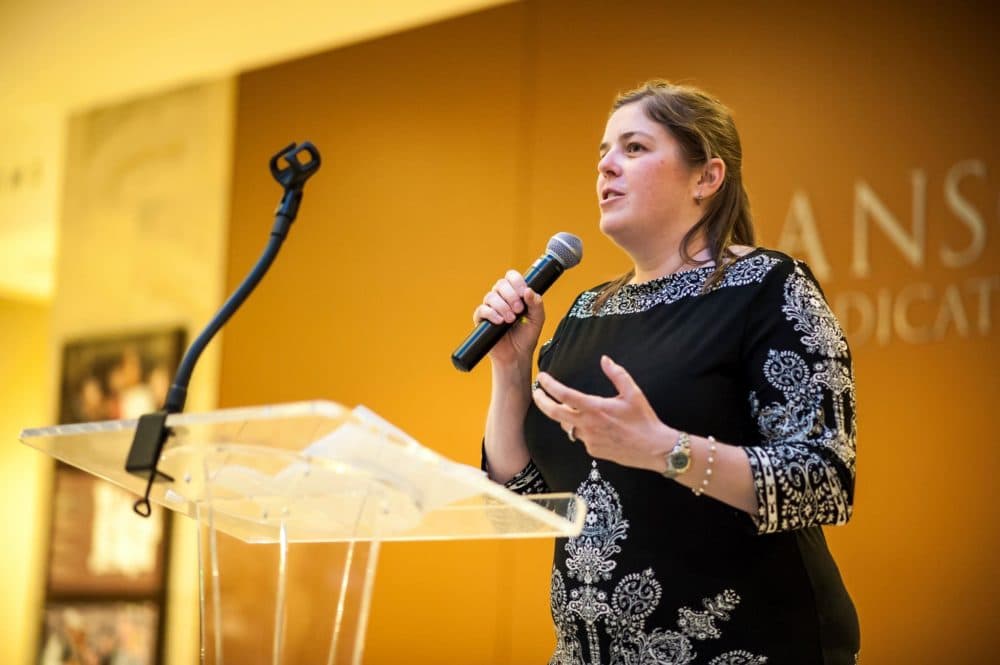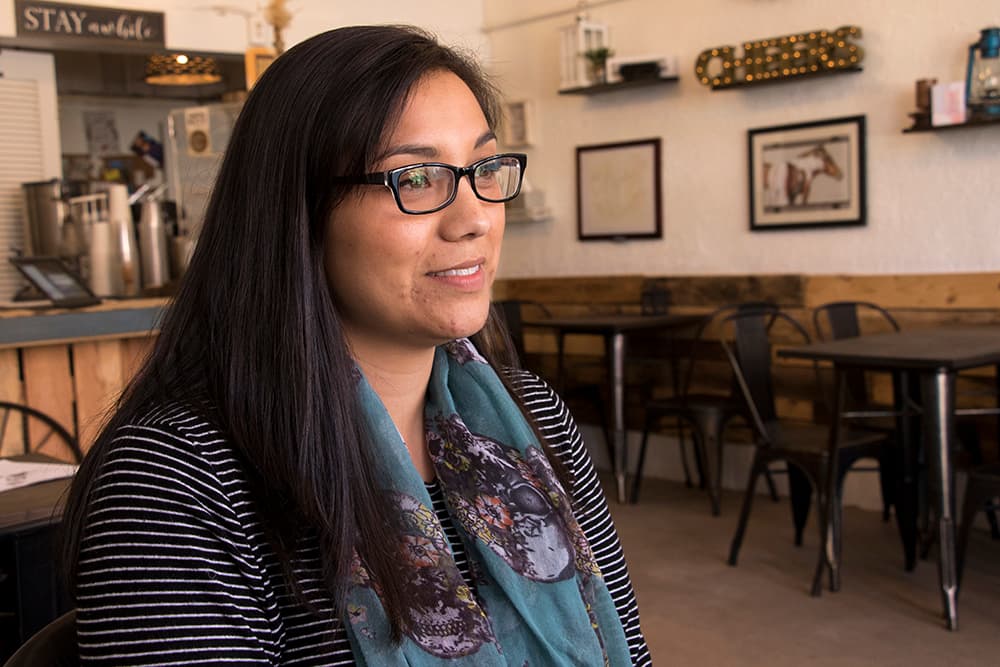It's an open race in northwestern Denver's House District 4, where three candidates are running in the Democratic primary. The current representative, Democrat Dan Pabon, is not running due to term limits. Here's what we heard in conversations with the candidates.
Amy Beatie

Amy Beatie, 46, is the executive director of the Colorado Water Trust and an adjunct professor at DU’s Sturm College of Law. She filed to run on the day that President Donald Trump was inaugurated, but she said her interest and knowledge of the state stretch are rooted in years of work around Colorado.
“I got to see struggles with rural health care services delivery, or education, criminal justice and affordable housing,” she said. “But then, I kept coming home, and everything in my backyard was changing. Our landlords raised our rent $1,000 a month. … I realized I could take my love of my community, and all of the skills and relationships … and just focus it right on my backyard.”
On education: Beatie cites great schools as a top priority. “I’ve seen firsthand the challenges of our education system, from de facto segregation in our urban schools to the profound under-funding across the state to how unaffordable higher education has become,” her website states.
On housing: Beatie said she supports a wide range of housing strategies, from urban land conservancies to density bonuses for affordable developers. Her overarching strategy, though, is “economic justice. We tackle affordable housing by tackling income inequality head on,” she said, citing her support for unions and higher minimum wages.
On health care: “Health care is a basic human right,” Beatie said, describing the current situation “unacceptable.” She was a supporter of ColoradoCare, and she feels strongly that “it’s time we start to really challenge the way our health care is provided,” she said. “There isn’t an idea out there about how to make it affordable and accessible that I’m unwilling to look at.”
Overall, Beatie said she was striving to understand the challenges that her would-be constituents face every day. “I have not lived in systems designed to disenfranchise me,” she said. “... I need to be the best ally that I possibly can. It’s a tremendous weight and an important much deeper awakening running (for office) has provided.”
Ed Britt

William “Ed” Britt decided to run after working to pass HB17-1360, which somewhat loosened the requirements for people seeking to seal their criminal records. He works in public administration for the University of Colorado and describes himself as a longtime Democrat. “I’m not a limousine liberal that just carpetbagged into the neighborhood,” he said earlier this year.
On justice: Britt wants to see “more funding for a restorative criminal justice system,” he said, as well as for drug addiction counseling. He also wants to see immigration reforms. "I have concerns that we’re not educating individuals currently, right now, with our Latino leadership," he said. Immigrants with revocable statuses, he said, must be educated about how even low-level offenses could result in deportation.
Britt also wants to see reforms to the state’s labor laws. “We need to put unions back in our state and working,” he said. One solution could be to require union jobs when companies take advantage of certain state financing programs.
On housing: Britt wants to see a stronger push for affordable housing, especially for “working class individuals,” he said. He also wants to make life easier for older people with a plan “to strengthen, tighten and keep in place our senior property tax exemption,” he said. “It’s gotten to be a burden on them, and I hear it every day.”
He also supports reforms for renters’ rights, including recent efforts to hold landlords accountable for how they’re spending application fees.
On health: Britt emphasizes his environmental policies. “Deforestation, agricultural practices, and fossil fuels are all issues that contribute to greenhouse gases,” he states in a policy video, calling for a shift in investments to renewable energy infrastructure.
(Britt wasn’t immediately available for a follow-up interview about his positions on education and health care. We’ll update when possible.)
Serena Gonzales-Gutierrez

Serena Gonzales-Gutierrez, 36, is a first-time candidate running for House 4. Having worked in child welfare and juvenile justice for 15 years, she says her priority is to support families in the district.
“We have to work within policy with our families and make sure they get the resources and services that they need,” said Gonzales-Gutierrez, now a senior social caseworker for the city and county of Denver. She is a graduate of Emerge’s training program for women candidates. “We want them to have a voice at the table. Not just that I’ll be that voice -- I want them to have a voice.”
On education: A mother of Denver Public Schools students, Gonzales-Gutierrez describes education as the foundation of a “bright and productive future.” She wants to change the state’s long history of “underfunded K-12 education,” per her website.
On housing: She cites Denver Councilwoman At-large Robin Kniech as a leader on affordability issues. Gonzales-Gutierrez wants the state to work to create an affordable housing fund and to use its influence to encourage cities to create innovative new programs. “As a state, we can have that influence and continue to be a partner with our local municipalities,” she said.
On health care: Gonzales-Gutierrez describes Colorado’s health insurance exchange as one of the state’s legislative successes.
Gonzales-Gutierrez also names criminal justice reform as a priority, saying that the state needs to take a “deeper dive” to examine whether private prisons are harming the overall system. And she believes that improved treatment services could help people with mental health issues stay out of jail and prison, an issue she worked on as director of the Denver Collaborative Partnership.
In particular, she wants the state to try to incentivize providers to expand their substance-abuse treatment options for juveniles. “Do we need to ensure there’s Medicaid funding for programs like that?” she asked.
Overall, she said, she’s been motivated in her campaign by her three young children.
“I want them to see that even though I might be nervous, that I’m doing it, that I’m putting myself out there and I’m doing it,” she said. “I’m a mom, I’m a woman and I’m a woman of color. Growing up, I learned from an early age that I would have to work harder -- and I have.”
If you care about journalism and politics in Denver, you can subscribe to our newsletter and become a Denverite member.











